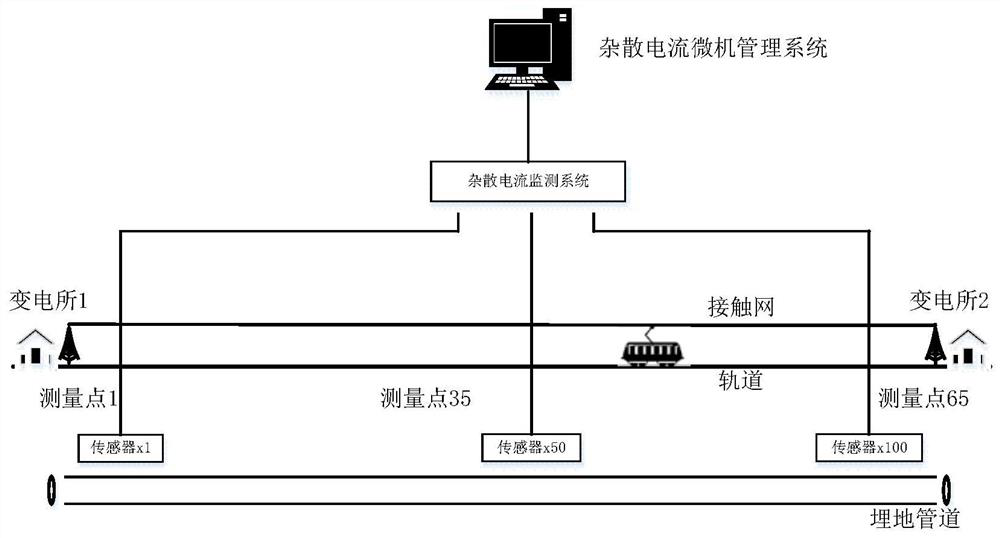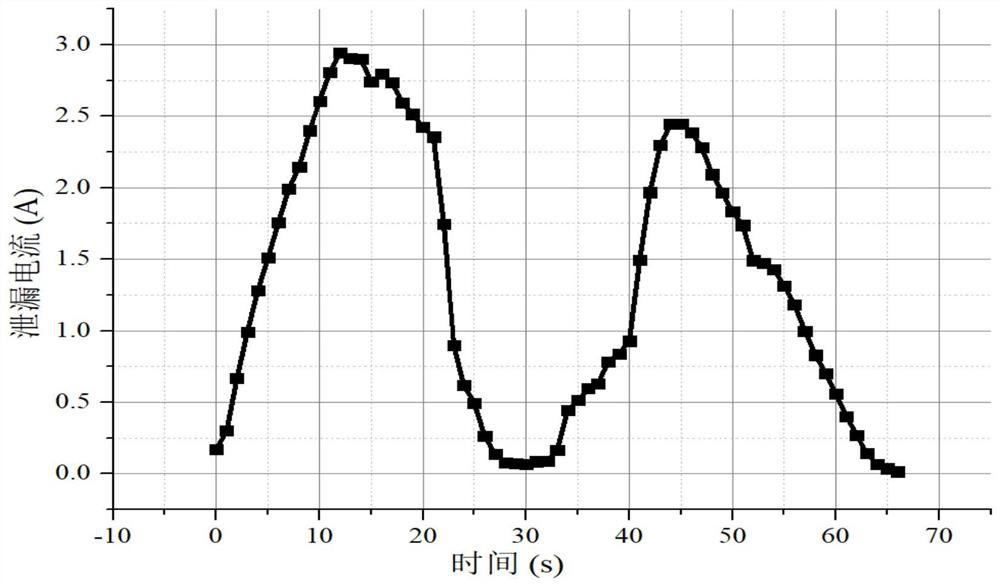Pipeline Corrosion Prediction Method Under Subway Stray Current Based on Partial Least Squares Method
A technology based on partial least squares and stray currents, applied in the field of pipe corrosion prediction under stray currents of subways based on partial least squares, can solve problems such as hidden dangers of passengers' safe travel, economic losses, and electrochemical corrosion of buried metals
- Summary
- Abstract
- Description
- Claims
- Application Information
AI Technical Summary
Problems solved by technology
Method used
Image
Examples
Embodiment 1
[0047] Such as figure 1 As shown, one section includes two traction substations, rails, trains, catenary, buried pipelines and stray current detection systems: stray current microcomputer management system, stray current monitoring system, 100 sensors. The sensor data is summarized by the stray current detection system, and then transmitted to the stray current microcomputer management system for processing, analysis and prediction. The technical scheme adopted in the present invention is: a method for predicting the corrosion current density of subway stray current pipelines based on partial least squares method, the method comprising the following steps:
[0048] Step S1: In a running interval, according to the operating conditions of the train (acceleration, constant speed, deceleration), set 65 sample parameter measurement points in the interval, and lay 100 sensors at equal intervals along the track, such as figure 1 As shown, the surface potential is measured at each m...
PUM
 Login to View More
Login to View More Abstract
Description
Claims
Application Information
 Login to View More
Login to View More - R&D
- Intellectual Property
- Life Sciences
- Materials
- Tech Scout
- Unparalleled Data Quality
- Higher Quality Content
- 60% Fewer Hallucinations
Browse by: Latest US Patents, China's latest patents, Technical Efficacy Thesaurus, Application Domain, Technology Topic, Popular Technical Reports.
© 2025 PatSnap. All rights reserved.Legal|Privacy policy|Modern Slavery Act Transparency Statement|Sitemap|About US| Contact US: help@patsnap.com



